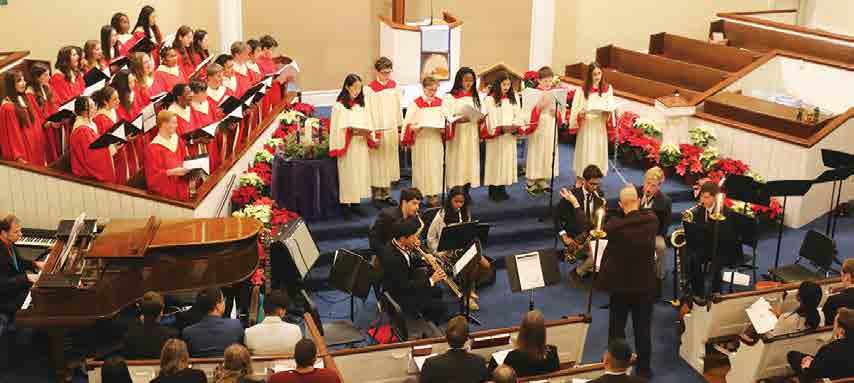Now registered with the National Wildlife Federation as a Certified Wildlife Habitat
The Pennington School Community
Garden
W
hat started as a few planted seeds several years ago has turned into a flourishing garden, thanks to the hard work and dedication of Pennington students and faculty. Originally, Environmental Science teacher Margo Andrews used the garden as a site for students to learn about soil science. However, without regular maintenance, the garden quickly became overgrown, so Andrews happily accepted a generous offer of help from former faculty member Robbi Uzupis. Uzupis was instrumental in cleaning up the weeds and keeping things growing throughout the summer. Numerous other faculty and staff have also provided critical help with watering and maintenance during summer months, making the garden a true community space. Students continue to use the garden in their classes, and it has also been incorporated into Community Day and senior Horizon projects.
30
Pennington Magazine Fall/Winter 2019–20
Everything in the garden is grown organically with no pesticides, herbicides, or chemical fertilizers—only compost from residential faculty’s food waste. Most of the seeds and seedlings are from ISLES, a Trenton-based nonprofit with an urban agriculture program that directly benefits more than 1,000 city residents. Being part of their Garden Support Network gives Pennington access to seeds, seedlings, and their valuable expertise (and the School, in turn, has sent student volunteers to ISLES gardens on Community Day). The brand-new fence installed last June was the final touch needed to create a thriving garden! It has been almost five years since students started doing soil labs, amending the soil, and planting in the spring and fall. Our garden pumps out some amazing crops including cucumbers, squash, zucchini, tomatillos, tomatoes, peppers, garlic, onions, kale, chard, beets, cabbage, eggplant, broccoli, carrots, and many perennial and annual herbs. Recently, the School was able to register the garden with the National Wildlife Federation as a Certified Wildlife Habitat, thanks to the new pollinator garden built by Jack Fancher ’20 for his Environmental Science final project. The food is available to everyone in the Pennington School community who would like some fresh produce or herbs. The garden is located behind Becher Hall and the Pennington School homes on West Delaware Avenue.



















